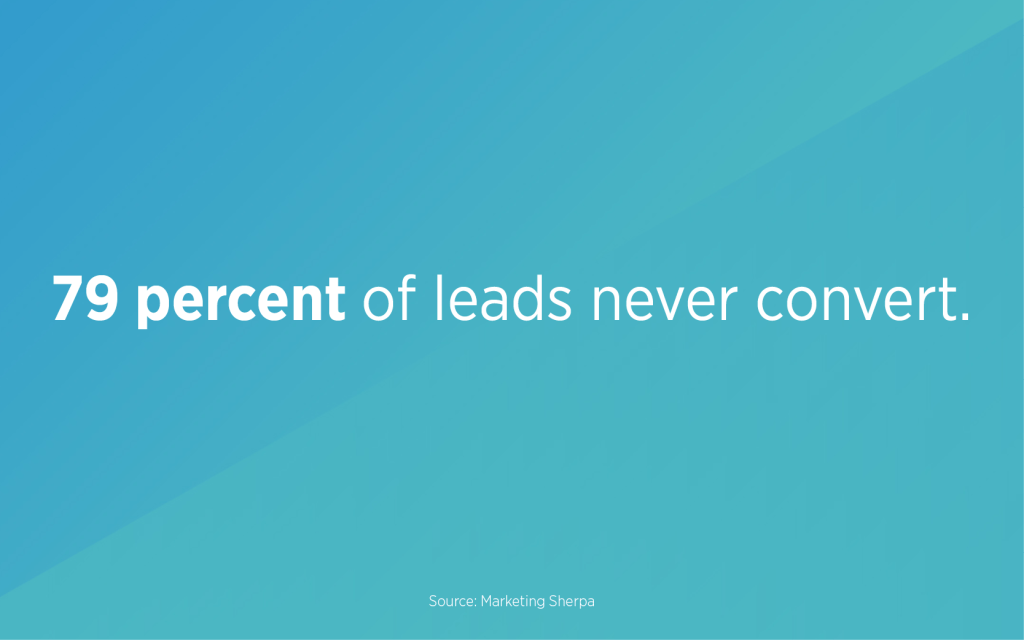
If your business relies on a sales team to nurture leads and close deals, you need a streamlined sales process. That’s where a sale management software system that tracks leads, nurtures relationships, and closes deals as efficiently as possible comes into play.
In this blog post, we’ll discuss
- what exactly a sale management software is
- the key roles of sales management software
- the benefits of using sales software to streamline your sales process
- what to consider when choosing a sales software
- the best sales management software available
What is a Sale Management Software?
Sales management software, also sometimes known as customer relationship management (CRM) software, is designed to streamline and optimize the sales process. It gives businesses a centralized platform to efficiently manage leads, customer information, and sales data.
This software helps increase productivity, improve lead management, facilitate accurate forecasting, and keep a consistent customer experience.
Sales software also helps businesses to have an overview of their customers, helping to build long-lasting relationships. This means not only tracking sales interactions but also understanding customer preferences and needs. This deeper insight leads to personalized marketing campaigns and sales pitches, better customer service, and ultimately higher customer satisfaction and loyalty.
Key Roles of Sales Management Software
Let’s explore some of the key roles that sales management software plays:
Lead and contact management
Sales management software lets you organize and centralize your leads and contacts, so it’s easy to track interactions and conversations, record important details, and segment your audience. This is extremely useful for lead generation and nurturing.
It allows you to categorize leads based on various attributes, such as industry, location, or their position in the sales funnel. This segmentation helps your sales team to tailor their messages and offers to different customer groups effectively.
Sales pipeline management
Effective sales management software gives you a visual representation of your sales pipeline, helping you track and manage deals at every stage. This view is important for forecasting and making informed business decisions.
Your sales pipeline is a roadmap for your sales team, outlining the stages a lead goes through before becoming a customer. These stages might include initial contact, product demonstration, proposal, negotiation, and closing. A well-structured pipeline lets your team see where each deal stands and what actions are needed to move it to the next stage.
Pipeline management also lets you set clear expectations and goals for each stage, helping your sales team understand their targets and responsibilities. This transparency promotes accountability and motivation within the team, leading them to maximize deals closed.
Automation and workflow
A sale management software automates many routine tasks, such as sending follow-up emails, scheduling appointments, and updating contact information. This automation streamlines your workflow, reducing manual labor and the risk of errors. It lets your team focus on what they do best: selling.
Automation is also helpful for data or information entry. Instead of manually inputting contact information and interactions, the software captures this data automatically. It can log emails, phone calls, and other interactions with leads and customers, saving time while keeping data accurate and up-to-date.
Workflow automation takes automation a step further by creating sequences of actions that occur based on triggers or conditions. For example, when a lead reaches a certain stage in the funnel, the software can automatically notify a sales representative to reach out. Workflow automation keeps your sales process well organized and makes sure that leads are nurtured and are progressing through the pipeline consistently.
Communication and collaboration
Collaboration is key to making a sales team successful. Sales management software often includes features that facilitate communication and collaboration among team members. It ensures everyone is on the same page, sharing information and strategies, leading to better decision-making and a more connected team environment.
Often, relationships can make or break a sale. You need to nurture and build strong customer relationships to turn leads into loyal customers. CRM features in sales management software help you manage customer data, track interactions, and ensure excellent customer service.
Customer Relationship Management
Building and maintaining customer relationships is not solely the responsibility of the marketing and customer service teams. The sales team plays a significant role in shaping these relationships, as they are often customers’ primary point of contact throughout the sales process.
One of the main advantages of a CRM system is that it allows your team to personalize their interactions with customers. When a sales representative has access to a customer’s purchase and conversation history, as well as preferences and needs, they can tailor their messages to match the customer’s interests. This personalization goes a long way in making the customer feel valued and understood.
CRM features also support proactive customer engagement. The software can trigger reminders for follow-up calls or emails, making sure that customers are kept informed and engaged throughout their journey. This is particularly valuable for upselling and cross-selling opportunities.
Reporting and analytics
Gathering and analyzing data is important for making informed decisions. With sales software, you can access information about your sales operation, like key performance metrics to identify trends and make data-driven decisions for your sales strategy.
Key performance indicators (KPIs) provide a snapshot of your sales performance, and sales management software typically offers customizable dashboards to display these KPIs. Some common sales KPIs include conversion rate, sales velocity, average deal size, and the number of deals in your pipeline.
Beyond these core KPIs, a sale management software often generates reports on a variety of other metrics, such as win-loss ratio, sales cycle length, and customer acquisition cost. These reports can be customized to focus on the parts of your sales process that are most important to your business.
Trends and patterns become evident when you analyze these reports over time. For instance, you might notice that certain months consistently have higher sales or that certain products or services have a higher win rate. Identifying these trends allows you to make strategic decisions, such as increasing marketing efforts during peak months or prioritizing promoting high-converting products or services.
Benefits of Using a Sale Management Software
Your business will no doubt benefit from implementing a sales management software. The benefits vary from different aspects of your business, such as sales efficiency, revenue growth, and customer satisfaction.
Enhanced Productivity
A sale management software significantly increases productivity by optimizing your workflow, automating tasks, and providing data insights. As briefly mentioned earlier, by automating specific tasks, sales teams can spend more time selling and building relationships while reducing the time spent on administrative tasks. This helps sales teams become more efficient and close more deals.
Sales management software also increases collaboration and communication within your sales team. Sales teams can easily share information, discuss strategies, and coordinate their efforts within the software. This helps your team become more collaborative, boosting productivity and keeping everyone on the same page.
Improved Lead Management
Sales management software excels in lead management because it has a centralized place for lead data. It simplifies lead tracking, ensures prompt follow-ups, and lets you categorize leads based on their position in your sales funnel. With a clear view of the sales pipeline, your team nurtures leads effectively and increases conversion rates.
Additionally, automated lead nurturing sequences can be triggered to send targeted content or follow-up messages to leads based on their behavior. This makes sure that leads don’t fall through the cracks and that every potential customer receives attention.
Better Forecasting
Accurate sales forecasting is crucial for business growth and planning. A sales management software has the tools necessary to create precise forecasts. By analyzing historical sales data and tracking the progress of current opportunities, you can make informed decisions about resource allocation, growth strategies, and more.
The forecasting capabilities of the sales software often extend to predictive analytics. These tools can help identify trends and patterns in your sales data, allowing you to anticipate market changes and adjust your strategies accordingly.
Consistent Customer Experience
You need to maintain a consistent and high-quality customer experience to have a successful business. Sales management software helps you achieve this by centralizing customer information and interactions.
Whether it’s sales, marketing, or customer support, every team member can access the same customer data, allowing for personalized, consistent, and effective communication.
Sales software includes customer feedback and survey features, enabling you to gather valuable insights directly from your customers. Use these insights to fine-tune your offerings, address pain points, and continuously improve the customer experience, resulting in higher satisfaction and loyalty.
What to Consider when Choosing a Sale Management Software
Your Business Goals
Before purchasing and implementing a sales software, define your specific business objectives. Consider the long-term vision for your business and determine what you want to achieve with the software. Do you struggle with lead management, or is your pipeline management less efficient than you’d like it to be? Are you looking to increase the number of deals closed, or do you want to improve the customer experience?
Once you’ve identified your goals, break them down into smaller, actionable objectives. For example, if your main goal is to increase lead conversion, your objectives might include improving lead tracking, implementing lead scoring, and enhancing lead nurturing.
Setting clear objectives provides a roadmap for your team and a way to measure progress. Your goals also help you determine the features and capabilities you need in your sales software.
Ultimately, your sales management software should align with your goals and strategy, adapting to your needs.
Features
Consider the features that are essential for your sales process. Look for software that offers lead management, contact organization, communication tools, analytics, and reporting. It’s also beneficial for the sales software to provide customization options so you can tailor it to your specific needs.
Ease of use
User-friendliness is essential for successful adoption within your team. Ensure that the software is intuitive and has training or support resources to help your team get up to speed quickly.
A key aspect of ease of use is the availability of customer support and resources. Reliable customer support can be a lifesaver if you encounter technical issues or have questions about using the software.
Integrations
Check for compatibility with your existing software stack. Integrations with marketing automation tools, email platforms, and other essential software help streamline your operations.
No matter what sales management software you use, Skipio is a great integration or companion software for your sales team. Skipio is a text messaging platform that helps your sales team efficiently reach out to leads and customers. Use Skipio’s text messaging to personalize your communication, engage with leads in real time, nurture leads, increase appointments, automate follow-ups, and more.
Pairing Skipio with your sales management software helps your sales team manage communication with leads and customers at key stages in the sales process. The consistent and timely communication that texting provides enables you to close more deals.
Customization
Every business is unique, so the ability to customize the software to fit your specific requirements is valuable. Look for software that allows you to adapt and configure it to your processes.
Additionally, explore options for creating custom reports and dashboards. These features can provide deep insights into your sales operations and support data-driven decision-making.
Your Budget
Consider your budget constraints and weigh the cost of the software against the value it brings to your business. Keep in mind that the benefits of enhanced productivity and improved customer management can outweigh the initial investment.
Different pricing models, such as subscription-based or one-time purchases, are worth considering to find the best fit for your budget. Additionally, factor in any potential costs for training, support, or add-on features/integrations.
Scalability
Make sure that the sales software can grow with your business. As your business expands, the software should accommodate increased users, data, and complexities without requiring frequent upgrades or migrating to a different sales software.
Software that offers tiered pricing plans or modular features is the best choice for allowing you to scale up as needed. Scalability ensures that your software investment remains valuable even as your business evolves and expands.
Best Software for Sales Management
When it comes to selecting the best software for sales management, there are several top contenders available. These platforms offer many features and capabilities to streamline your sales processes and boost your team’s efficiency. Here are some of the top choices:
- Hubspot: HubSpot is a popular choice known for its all-in-one marketing, sales, and customer service platform. It has robust CRM features, email marketing, lead tracking, and integrations with various tools, making it a comprehensive solution for businesses of all sizes.
- Salesforce: Salesforce is a CRM solution with extensive customization options, a large app marketplace, and robust analytics. With its options for scalability, it’s a great option for small and large businesses.
- Close: Close is a software with a strong focus on sales communication and pipeline management. It’s designed to help sales teams close deals more efficiently with email automation, predictive dialing, and reporting features.
- SalesLoft: SalesLoft specializes in sales engagement and automation. It’s an excellent choice for outbound sales teams. Its features include email tracking, cadence planning analytics, and more to help your team reach prospects effectively.
- Pipedrive: Pipedrive is a sales software designed to help small and medium-sized businesses manage leads and deals effectively. It has a user-friendly interface, automation, and reporting tools that make it an excellent choice for sales teams looking to grow.
Increase Your Sales with a Sale Management Software
With the right sales management software, you can streamline your sales process, improve efficiency, and ultimately increase your sales.
Skipio’s automated text messaging integrates with most sales management platforms, enabling your team to increase sales by efficiently delivering personalized communications to leads.
Schedule a demo to learn more about Skipio’s features and how text messaging positively impacts your sales goals.


